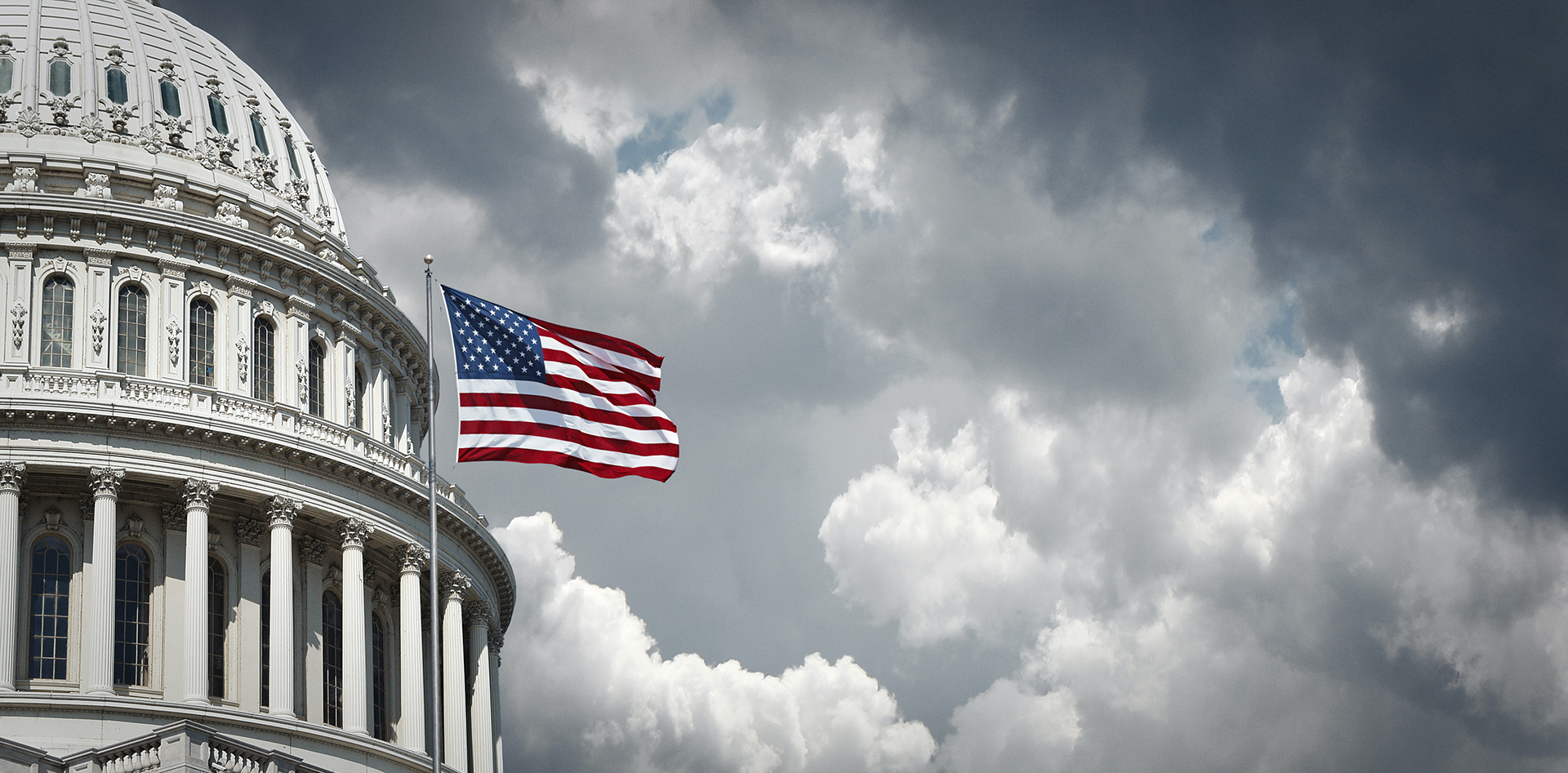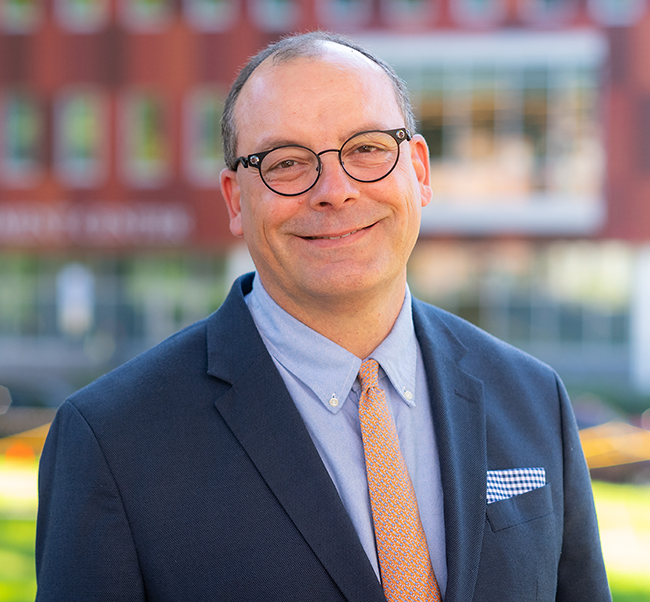Sebastián Royo publishes essay on democracy for leading Spanish think tank

Provost Sebastián Royo and Professor Kristen Williams last semester co-taught the undergraduate political science course Democracy in Distress?, a title that Royo acknowledges may not have been entirely accurate: The question mark could easily have been removed.
The cornerstone of American governance is unquestionably under threat, Royo argues, and is being steadily ground down by the kinds of extremism, polarization, and misinformation that found their fullest expression in the Jan. 6, 2021, attack on the Capitol, but which continue to cause damage in quieter, yet no less destructive, ways.
 In an essay published by the Elcano Royal Institute for International and Strategic Studies, a think tank based in Madrid, Spain, Royo notes that according to recent polls, 71 percent of Americans believe that our democracy is at risk (read an English translation of Royo’s essay, which is written in Spanish. He points to a series of factors that compromise democracy in the United States, including a dramatic increase in political violence, a corrosive distrust of institutions, the refusal to accept the results of fair elections, legislative bickering and stagnation, and a political system whose structure and operations are being manipulated in ways that surrender control to a minority of players who contravene the will of the majority.
In an essay published by the Elcano Royal Institute for International and Strategic Studies, a think tank based in Madrid, Spain, Royo notes that according to recent polls, 71 percent of Americans believe that our democracy is at risk (read an English translation of Royo’s essay, which is written in Spanish. He points to a series of factors that compromise democracy in the United States, including a dramatic increase in political violence, a corrosive distrust of institutions, the refusal to accept the results of fair elections, legislative bickering and stagnation, and a political system whose structure and operations are being manipulated in ways that surrender control to a minority of players who contravene the will of the majority.
The U.S. is now looking at the possibility of failing to meet its debt obligations if the debt ceiling isn’t raised, a real possibility if substantial budget cuts demanded by an ultraconservative contingent of Republicans are not made. The resulting default, he notes, could be devastating not only for the U.S. economy, but for the worldwide economy as well.
“Each election, instead of helping to resolve the differences, is becoming a new approach to the precipice where everything is at stake and losing can have catastrophic consequences,” he notes in the piece.
“The causes that have led to this situation are complex and multifaceted,” Royo continues in the essay, “and include the dramatic increase in inequalities, dissatisfaction with a political system that has not provided answers or met the expectations of citizens, and the cultural alienation of a very important sector of the country’s population, which is observing with growing concern the social transformations that are taking place.”
Sustaining a strong democracy is essential for the United States, he insists, and serves as a model for other nations. Royo, a native of Spain who moved to the United States decades ago to attend graduate school, recalls the turbulent politics of his own youth — the later chapters of Generalissimo Francisco Franco’s dictatorship and the 1981 failed coup d’etat in which Civil Guard soldiers held the Congress of Deputies hostage for 18 hours.
“When I came to the U.S., this was the shining light — the model for other countries all around the world,” he said during a recent interview. “Never in my wildest dreams did I think we’d find ourselves in the situation we are in now.”
The “profound deterioration” of people’s faith in political institutions, Royo said in the interview, is in great part attributed to the fact that “we stopped paying attention to the suffering and pain of so many people. They are feeling alienated and disrespected, and we need to find solutions. We can’t give up on people.”
Over the course of his career as a political scientist, Royo has been surprised by the level of political disengagement displayed by students in his classrooms. He said students often took a fatalistic view of governing, insisting that politicians were so corrupt and indifferent to the concerns of the population that voting in an election was of little to no consequence. That attitude has changed, he believes.
“I see young people who are more engaged now and who better understand the impact that political decisions have on their lives and futures,” Royo said. “That gives me hope; it’s a reason for optimism.”
Civic engagement at any level is a critical pathway for the younger generation to understand the vital roles and responsibilities of government, and how they can have an impact on the decisions that will affect their lives, Royo said. Students in the Democracy in Distress? class, for instance, attended Worcester City Council meetings, participated in political campaigns, and worked for nonprofits. “The students found value in this,” he said. “It was a reaffirmation that being exposed to the process in different ways gives you an appreciation of how important that process is, and the impact that these decisions have on people’s lives.”
Royo to address G20-sponsored QS India Summit
Provost Sebastián Royo will present at the QS India Summit 2023, which will be held Feb. 19–21, in South Goa, India. The theme for the Summit, “India’s Global Vision: Building Universities for a Knowledge Economy,” reflects the importance of building strong universities that can drive innovation, research, and economic growth in India. The Summit will provide a platform for attendees to exchange ideas, share best practices, and identify new opportunities for strategic collaboration. Royo will be serving on a panel that addresses higher education’s role in the areas of climate change and sustainability. “This will give me an opportunity to talk about the important things we’re doing at Clark,” he says. Of the 68 speakers at the conference, Royo is one of only three representing colleges and universities in the United States.


